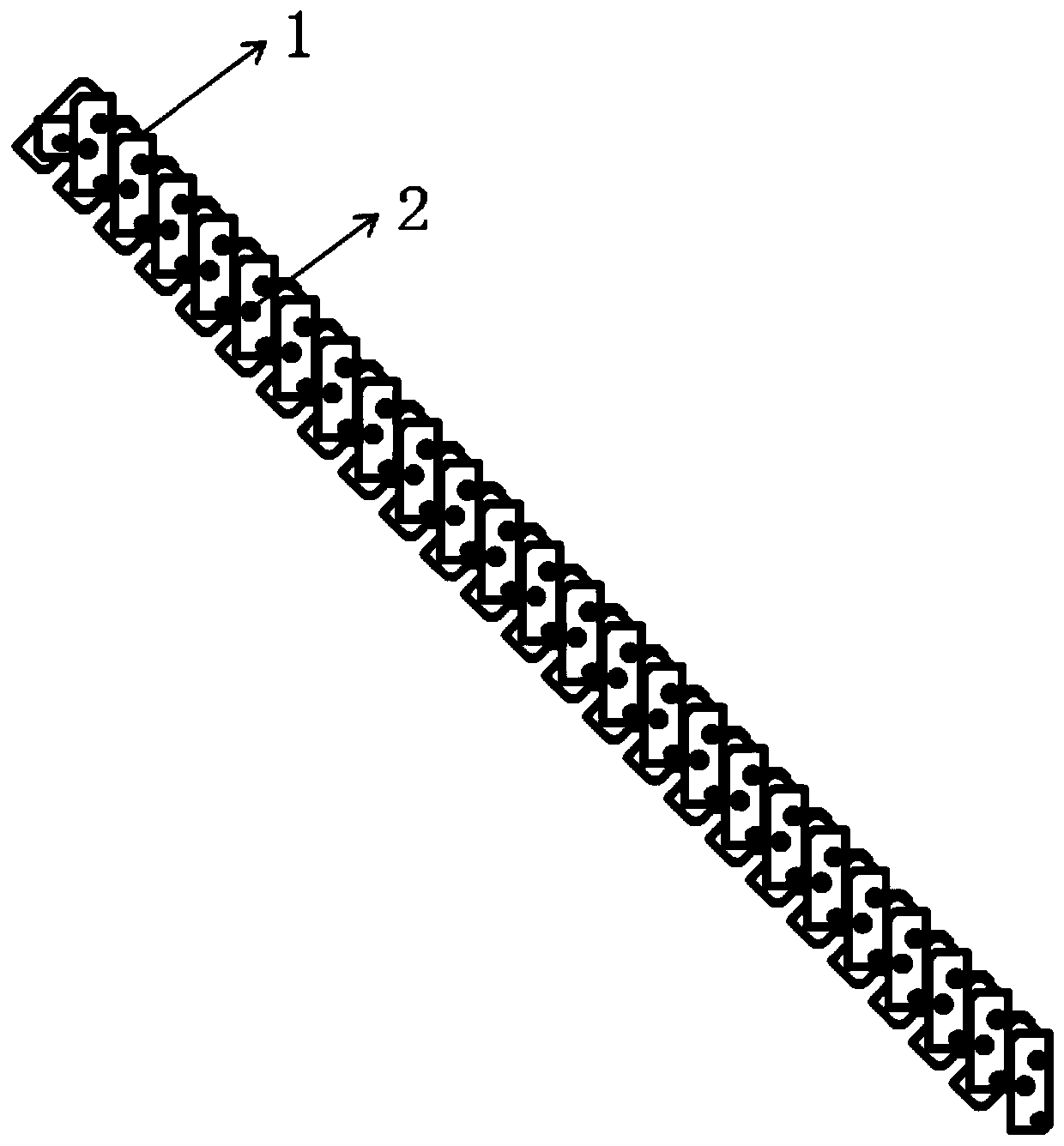Negative electrode composite lithium-supplemented material for lithium ion battery and preparation method thereof
A lithium-ion battery and lithium-replenishing technology, applied in battery electrodes, negative electrodes, secondary batteries, etc., can solve the problems of charging and discharging efficiency not reaching a practical level, reducing effectiveness, restricting popularization and application, and improving the first efficiency. and energy density, improving cycle retention, and long-term cycle performance
- Summary
- Abstract
- Description
- Claims
- Application Information
AI Technical Summary
Problems solved by technology
Method used
Image
Examples
Embodiment 1
[0039] This embodiment provides a lithium-ion battery negative electrode composite lithium supplement material, which is prepared by the following steps:
[0040] (1) Add 1 mg of graphene flakes to 30 ml of cyclohexane solution under a nitrogen atmosphere, ultrasonically disperse for 2 hours, and stir magnetically at 40° C. for 12 hours to obtain a graphene dispersion;
[0041] (2) then 1mL concentration is that the butyllithium of 1mol / L joins in step (1) graphene dispersion liquid, mixes and obtains spraying liquid;
[0042] (3) Adopting a spinneret with a diameter of 1.0mm to carry out electrospinning (voltage 20KV, spraying speed 0.02mm / s), spraying the spraying liquid of step (2) onto the collecting plate, and drying;
[0043] (4) Put the product of step (3) in a muffle furnace, and the temperature of the muffle furnace is raised to 700°C at a rate of 5°C / min. Using methane gas as a carbon source, carbon coating is carried out for 3 hours, and the obtained material is the...
Embodiment 2
[0055] This embodiment provides a lithium-ion battery negative electrode composite lithium supplement material, which is prepared by the following steps:
[0056] (1) Add 1 mg of graphene flakes to 30 ml of cyclohexane solution in a nitrogen atmosphere, ultrasonically disperse for 2 hours, and magnetically stir at 40° C. for 24 hours to obtain a graphene dispersion;
[0057] (2) then 1mL concentration is 1mol / L tert-butyllithium joins in step (1) graphene dispersion liquid, mixes and obtains spraying liquid;
[0058] (3) Adopting a spinneret with a diameter of 0.6mm to carry out electrospinning (voltage 20KV, spraying speed 0.02mm / s), spraying the spraying liquid of step (2) onto the collecting plate, and drying;
[0059] (4) Put the product of step (3) in a muffle furnace, and the temperature of the muffle furnace is raised to 700°C at a rate of 5°C / min. Using methane gas as a carbon source, carbon coating is carried out for 3 hours, and the obtained material is the The abov...
Embodiment 3
[0062] This embodiment provides a lithium-ion battery negative electrode composite lithium supplement material, which is prepared by the following steps:
[0063] (1) Add 1 mg of graphene flakes to 30 ml of cyclohexane solution in a nitrogen atmosphere, ultrasonically disperse for 2 hours, and magnetically stir at 40° C. for 24 hours to obtain a graphene dispersion;
[0064] (2) then 1mL concentration is that the phenyllithium of 1mol / L joins in step (1) graphene dispersion liquid, mixes and obtains spraying liquid;
[0065] (3) Adopting a spinneret with a diameter of 1.6mm to carry out electrospinning (voltage 20KV, spraying speed 0.02mm / s), spraying the spraying liquid of step (2) onto the collecting plate, and drying;
[0066] (4) Put the product of step (3) in a muffle furnace at 700°C, use methane gas as a carbon source, and carry out carbon coating for 3 hours, and the obtained material is the lithium-ion battery negative electrode composite lithium supplement material. ...
PUM
 Login to View More
Login to View More Abstract
Description
Claims
Application Information
 Login to View More
Login to View More - R&D
- Intellectual Property
- Life Sciences
- Materials
- Tech Scout
- Unparalleled Data Quality
- Higher Quality Content
- 60% Fewer Hallucinations
Browse by: Latest US Patents, China's latest patents, Technical Efficacy Thesaurus, Application Domain, Technology Topic, Popular Technical Reports.
© 2025 PatSnap. All rights reserved.Legal|Privacy policy|Modern Slavery Act Transparency Statement|Sitemap|About US| Contact US: help@patsnap.com


